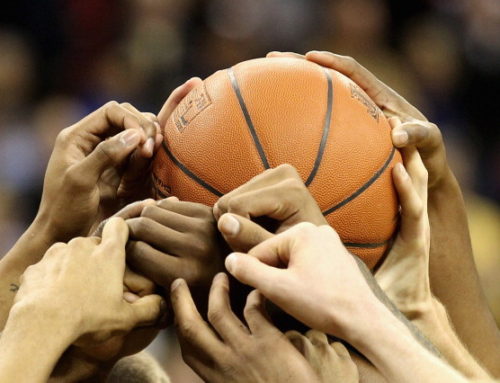NBA teams are not the only clubs that will not release their players to participate with their national teams during FIBA “international windows” in November and February. The Euroleague will also not make its players available and, according to French league officials, Eurocup clubs may also follow suit. This combination of lack of availability of top players and uncertainty has the potential to create chaos in European basketball this winter.
In an open letter published on September 8, 2017, FIBA General Secretary Patrick Baumann stated “just 11 per cent of (EuroBasket) players are playing in the NBA. That means that nearly 90 per cent of the current squads would be available for those two windows”. However, Mr. Baumann neglected to account for Euroleague and Eurocup players. Our analysis of the EuroBasket 2017 data, including those players, demonstrates a much larger impact. In fact:
49 % of the players who participated in 2017 EuroBasket won’t be available during the international “windows” in November and February (including 13% Eurocup players).
62 % of the overall playing time of the 2017 EuroBasket was given to players who won’t be available during the international “windows” in November and February (including 14% Eurocup players).
68 % of the total points of the 2017 EuroBasket were scored by players who won’t be available during the international “windows” in November and February (including 12% Eurocup players).
Many traditionally dominant teams had an even higher percentage of non-available players on their EuroBasket roster. Countries like Spain (100%), Russia (100%), Greece (92%), Serbia (83%) France (83%), Germany (75%), and Italy (72%), will see their rosters and chances for qualification decimated. The roster of the EuroBasket winner, Slovenia, had one of the lowest percentages of the successful teams (42%) but the EuroBasket final (Slovenia vs. Serbia) saw 65% of the playing time go to non-available players.
Overall, 11 out of the 16 second-round EuroBasket teams had 67% or more of their rosters made up of players that will not be available for the international windows.
In early July, Baumann told Eurohoops, “ethically it is very questionable to leave on the hands of the players the choice of playing either in the EuroLeague or in their national teams. We have no right to put the players in the position of having to decide”. But this is exactly what FIBA has done by forcing the issue of the national team windows without reaching a consensus on the calendar with other important stakeholders in basketball, including the players and their players associations.




